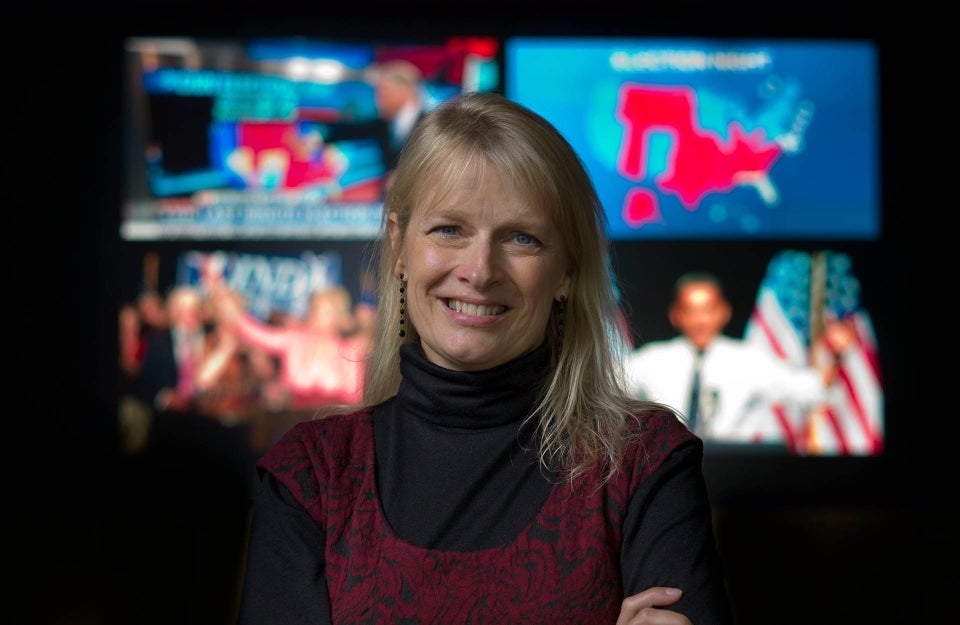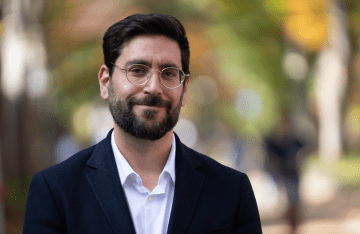Diana Mutz Awarded Guggenheim Fellowship to Study Attitudes Toward Globalization
Mutz's project looks at how the public understands globalization and how it affects the way they form political preferences.

From among a field of 3,000 applicants, Professor Diana Mutz has been named one of 178 Guggenheim Fellows for 2016.
Mutz, the Samuel A. Stouffer Professor of Political Science and Communications at the University of Pennsylvania, studies public opinion, political psychology, and mass political behavior, with particular emphasis on political communication.
The Guggenheim Fellowship will allow Mutz to extend a planned sabbatical and devote the entire 2016-17 academic year to continue her research on globalization and public opinion.
For years, Mutz says, there has been a prevailing wisdom that foreign affairs aren’t influential in shaping American political opinions — that Americans tend to ignore things beyond their borders unless we are engaged in a war. But with issues like trade deals, offshoring, immigration, refugees, and national security very clearly in the news, this Presidential election cycle has shown how much foreign affairs do matter to Americans.
“This project centers around how the public understands globalization and how it affects the way they form political preferences,” says Mutz, who directs the Institute for the Study of Citizens and Politics at Penn.
Her recent research in this area has debunked one common scholarly assumption: that people’s attitude toward globalization is based on their own economic self-interest. In fact those most opposed to trade are not those that have been most negatively impacted by it, nor those most vulnerable to its future impact.
She has found hints of important psychological factors underpinning positive attitudes towards globalization — high levels of social trust, low levels of nationalism and racial prejudice — but most explanations still focus on economic impact.
“Globalization is going to continue to be an important dimension of public opinion in national politics,” says Mutz, “and I’m very excited to be able to devote more time to this research.”
Mutz is the fifth Annenberg faculty member to receive a Guggenheim Fellowship — a number that well surpasses any other Communication school or program in the nation. Past recipients of the award include Barbie Zelizer (1994), former faculty member Larry Gross (1998), Marwan Kraidy (2011), and Carlin Romano (2013).
“The number of Guggenheim Fellowships awarded to Annenberg faculty in recent years speaks to the strength of scholarship here across a broad spectrum of communication areas,” said Michael X. Delli Carpini, Professor of Communication and Walter H. Annenberg Dean. “Diana Mutz’s work on globalization is incredibly relevant and innovative, and we’re thrilled that the Guggenheim Foundation has recognized that with this prestigious award.”
Awarded by the John Simon Guggenheim Memorial Foundation since 1925, Guggenhiem Fellowships provide financial support to scholars, artists, and scientists on the basis of prior achievement and exceptional promise.
Mutz is one of three professors at the University of Pennsylvania to receive a Guggenheim Fellowship this year. The other recipients are Timothy Rommen (Music and Africana Studies) and Joseph Subotnik (Chemistry).



